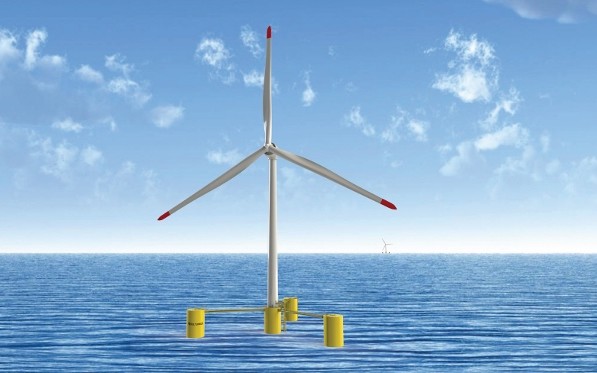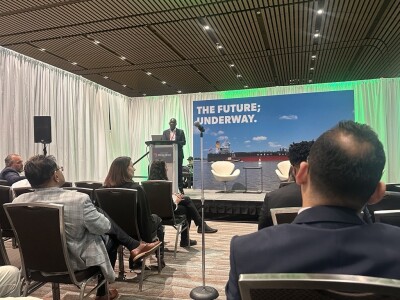Federal transportation officials turned down Maine’s request for a $456 million grant to develop a port for floating offshore wind energy, a setback for the state’s plans for renewable energy in the deepwater Gulf of Maine.
Maine’s grant application for a purpose-built port at Searsport was left off the list of projects chosen by the U.S. Department of Transportation for funding under its Multimodal Discretionary Grant Program.
Winners covered by the $4.2 billion package include port, bridge and highway projects. One such application approved was $217.2 million to the Philadelphia Regional Port Authority for its SouthPort Berth Phase 2 project on Philadelphia’s Delaware River port.
In a statement Tuesday, Maine Transportation Commissioner Bruce Van Note said the federal DOT decision was not a judgement on the merits of the state plan to develop Sears Island. The proposal to use 100 acres of the 941-acre tract, the largest undeveloped island in Penobscot Bay, has drawn local opposition from groups arguing to use the privately owned Mack Point terminal.
“We believe the result is a reflection of the fiercely competitive nature of this program and that it does not reflect, or undermine, the widely-recognized need for this port, the strong merit of Maine’s plan or the vast economic and environmental benefits associated with port development,” said Van Note.
The state is seeking another $130 million planning grant for the port from another federal program. While Massachusetts, Rhode Island, Virginia, New York and New Jersey have wind port plans in various stages of development, Maine’s would be the first designed for building floating turbines and towing them out for installation and anchoring.
The federal Bureau of Ocean Energy Development has outlined about 2 million acres in the Gulf of Maine for potential wind energy development. The administration of Maine Gov. Janet Mills has a stated goal of achieving 100% renewable energy by 2040.





